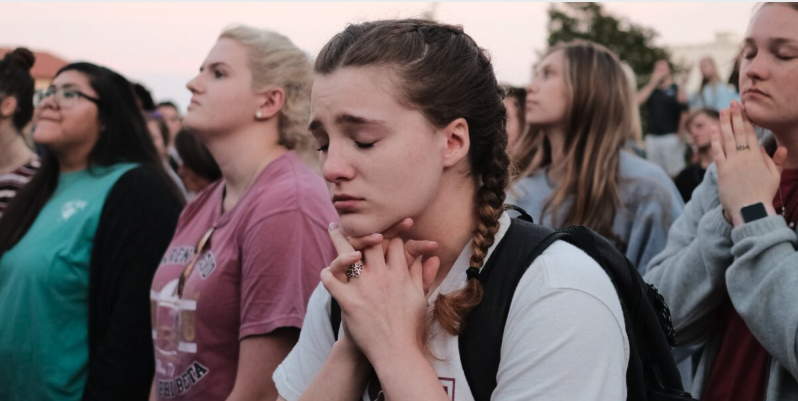
If you are unaccustomed to initiating conversations about conflict issues, you might feel nervous, scared, or anxious when considering such an action. Perhaps everything in you cries out “Leave!” or “Just ignore this” instead of “Let’s talk about this.” Despite being accustomed to initiating difficult conversations, I personally still tend to feel fearful and anxious when I know I need to go talk to someone. It has gotten easier with practice but not more comfortable. Such feelings drive me, and many of those I interviewed in China, to prayer. God often enables us to do what feels impossible when we first persevere in praying.
When telling me about his process of praying to determine whether he should stay or leave a church, Li Jun said, “If I were to behave according to my instinct and habitual way of thinking, I would just quit and leave; this is the Chinese way.”1 I immediately thought: That’s not just the Chinese way, it’s the human way! Praying made it possible for Li Jun to stay at his church. God showed him how to respond to the church conflict he faced rather than follow his own instinct to run away.
Zhou Na found prayer opened her up to forgive a man whom she despised—her father. At the end of his life, after ten days of caring for him in the hospital, Zhou Na was faced with a choice. When her father called her over to do something for him, in her physical and emotional exhaustion, she prayed, “God, look at this man. He can’t do anything. He caused so much suffering to his wife and daughter. How can he glorify you?” God’s clear response was amazing:
“It is now time. The time to forgive your father has come.”
I thought, “Wait a minute! First, I don’t want to forgive him out of pity. Second, I don’t want to forgive him just because he is about to die, and I don’t want to regret not having forgiven him.”
God then said, “It’s not for these two reasons. I want you to do this.”
Even though I was quite unwilling, there was an urgent voice in my heart saying, “This bus stop won’t come again after you pass this village.” Meaning, after this moment, I would never again have the opportunity to have this conversation with my father.
God said, “You choose.”
I said, “Okay, I choose to do it.”
That night was a very big turning point in my life. I said to my dad, who was in a tremendous amount of physical pain at the time, “I want to say something to you. In Christ, I am choosing to forgive you of all the hurt you have caused me in the past, present, and future.”
After saying these words, I cried but not out of pity for myself. No. I cried because I finally felt free.
I had kept such an emotional distance from him prior to that night, so I knew that the ability to speak and forgive him in this way did not come from myself.2
Sometimes God keeps graciously nudging our hearts as we pray, gifting us discomfort or a lack of peace until we make things right. Thank God for this nudging so our hearts can be set free, and relationships set right.
No matter what kind of conflict you are facing and no matter how overwhelmed, scared, or angry you feel about the idea of initiating conversation with someone else, there is one step you can always take without hesitation: Pray. God hears the prayers of his people. He will be with you as you place the situation in his hands and seek to follow his lead.
Note: Watch for Jolene’s forthcoming book, Changing Normal: Break Through Barriers to Pursuing Peace in Your Relationships, for more examples of how prayer can impact movement from being in conflict to experiencing restoration in a relationship. Available on Amazon starting January 14, 2024.
This blog post was first published on December 15, 2023 at China Source.
Image credit: Cason Asher via UnSplash.
Endnotes
-
- Li Jun (pseudonym), author interview, 2019.
- Zhou Na (pseudonym), author interview, 2019.


